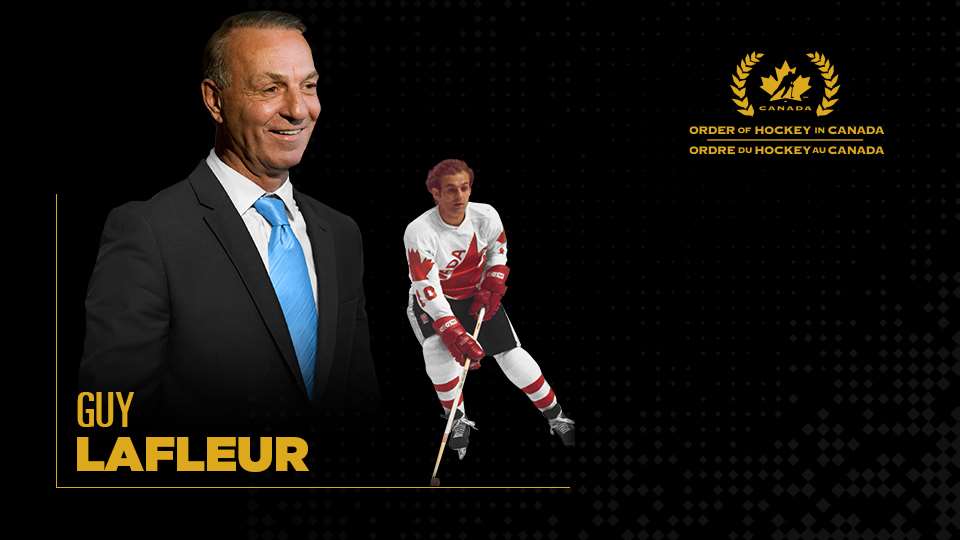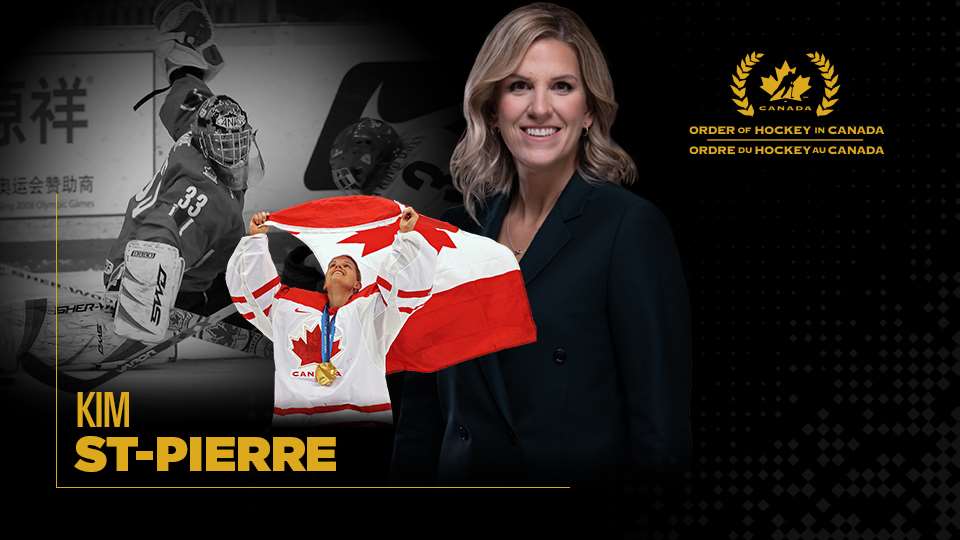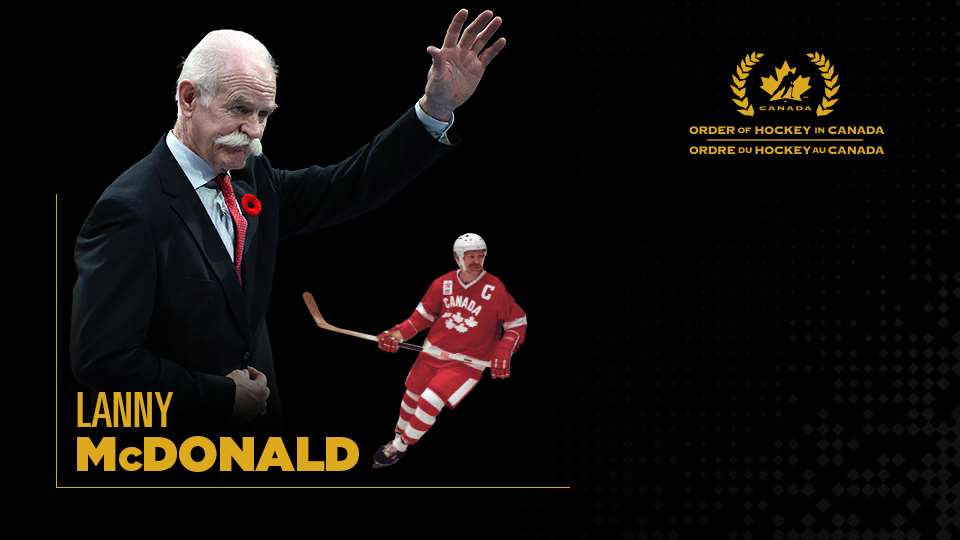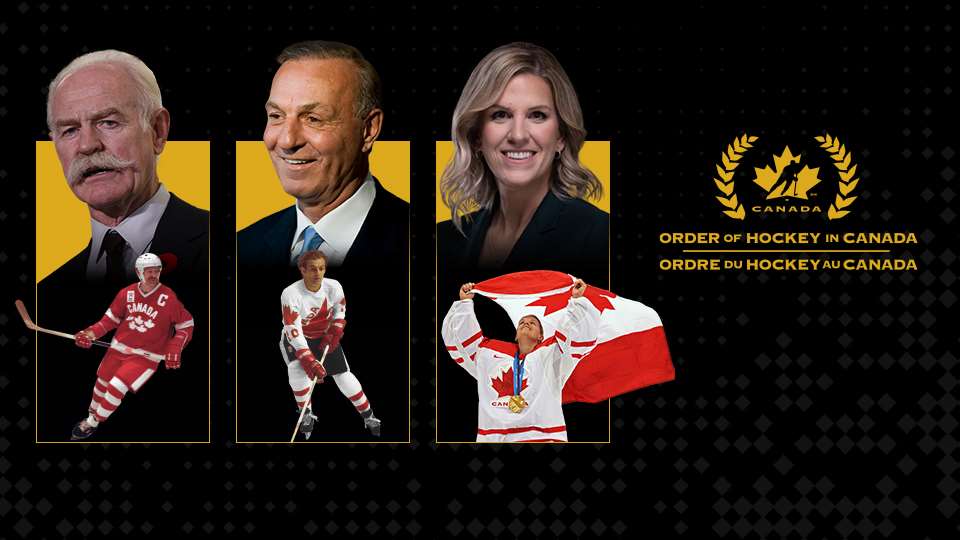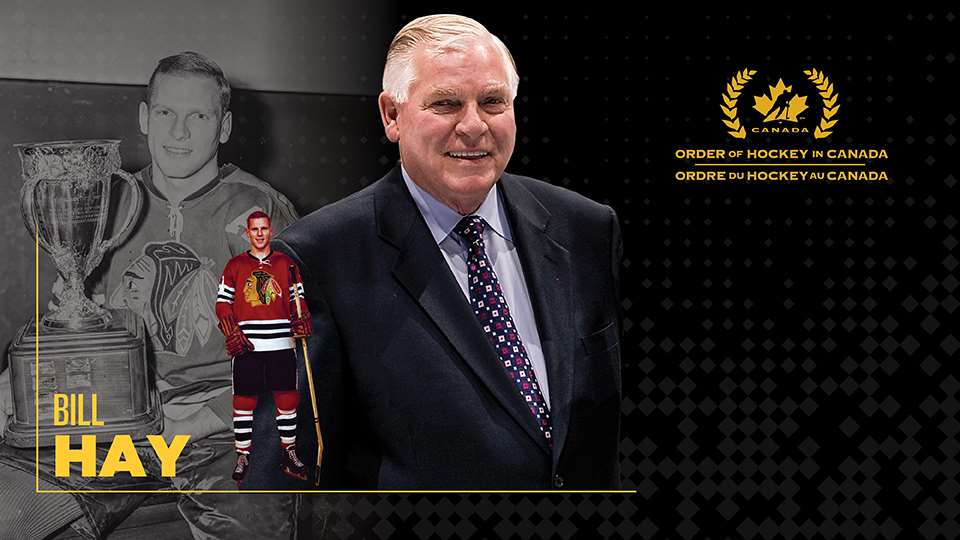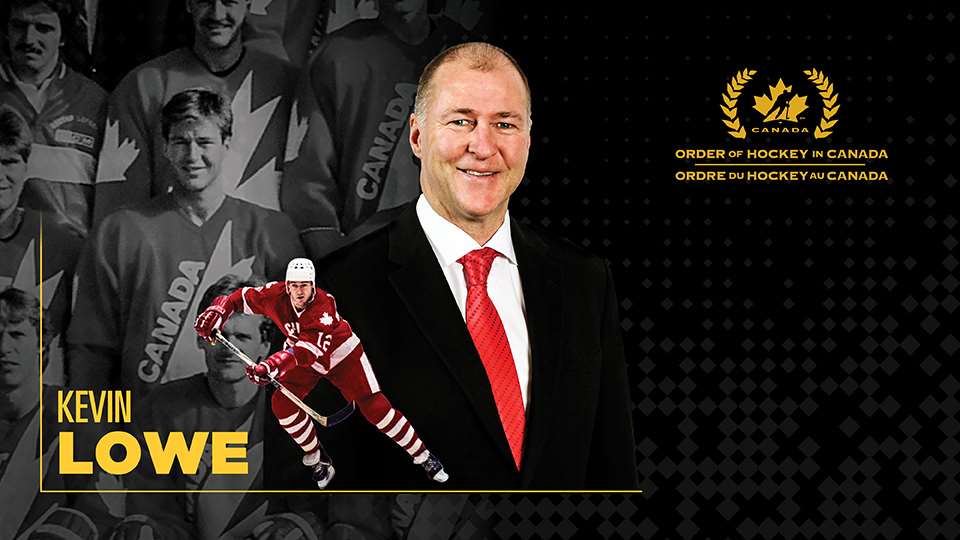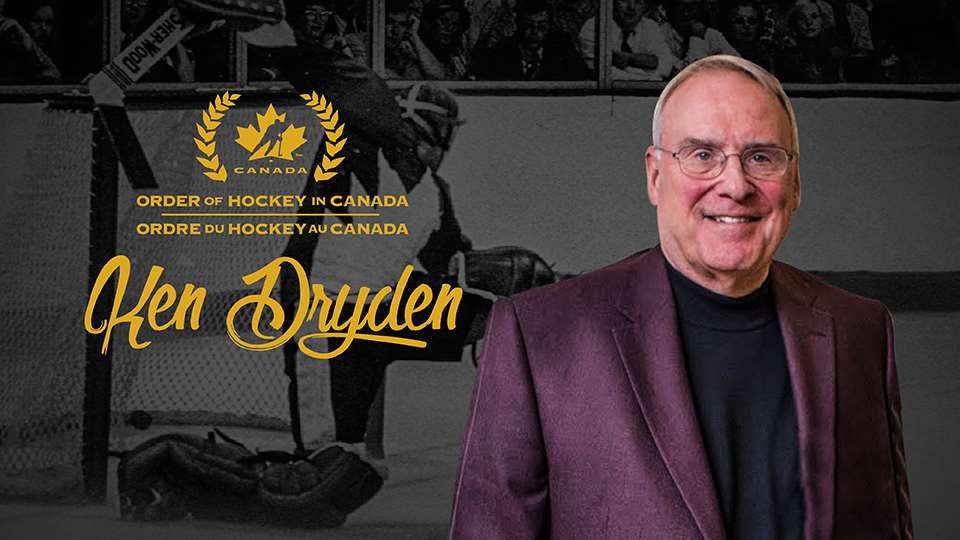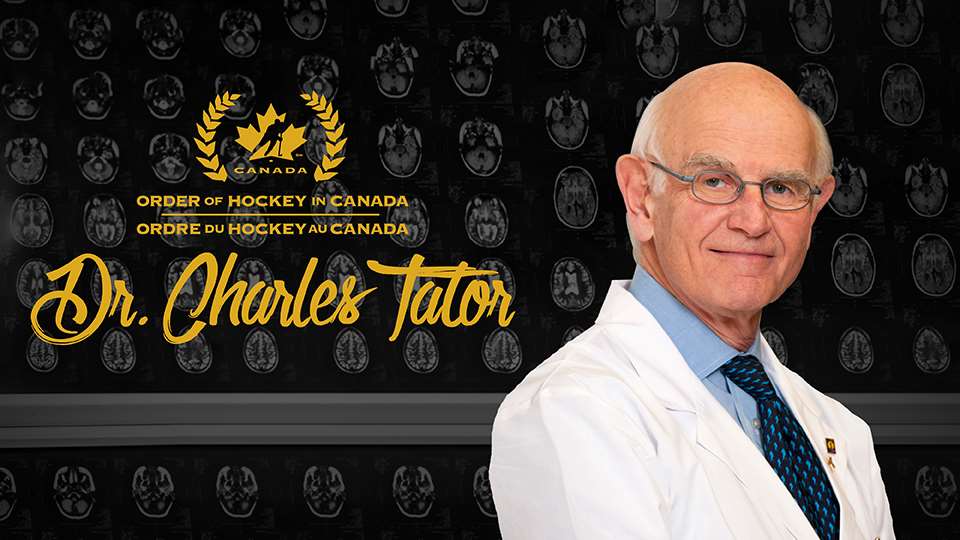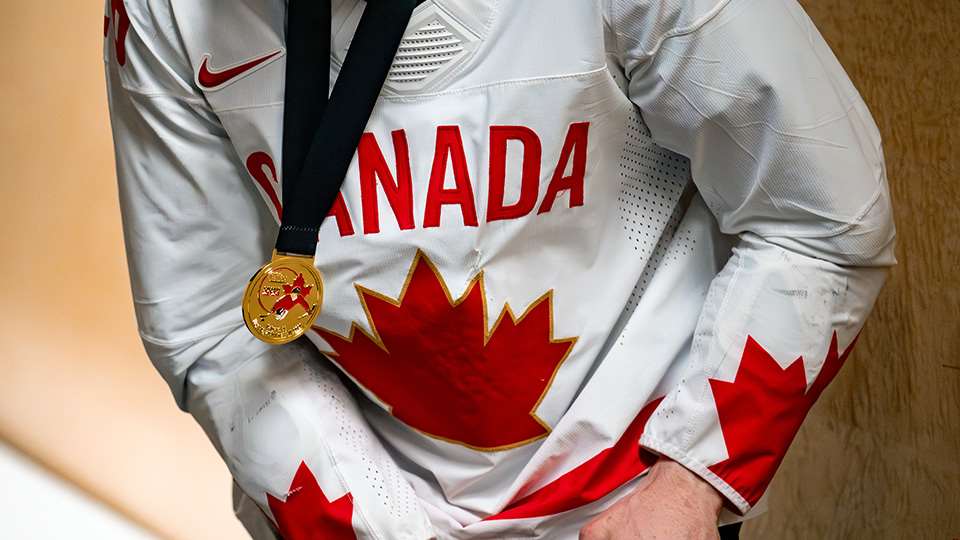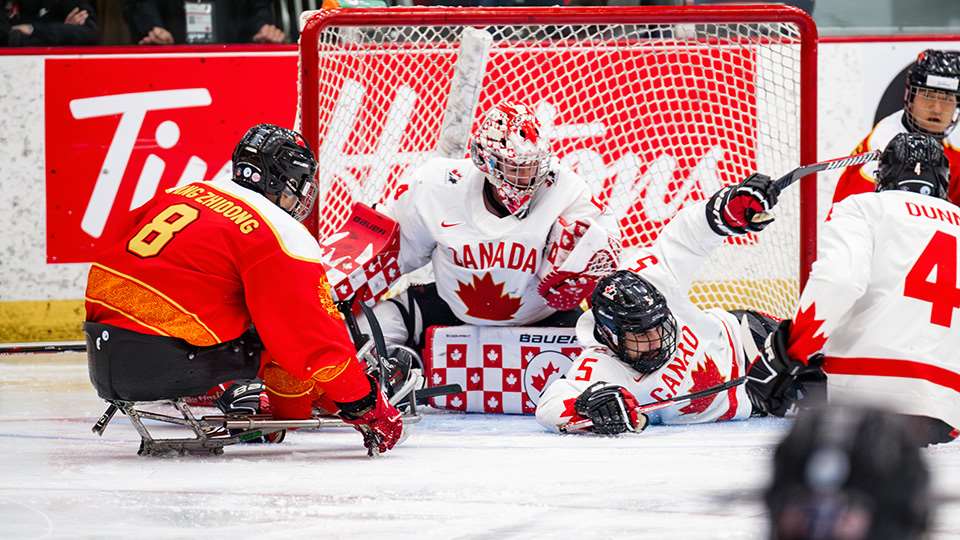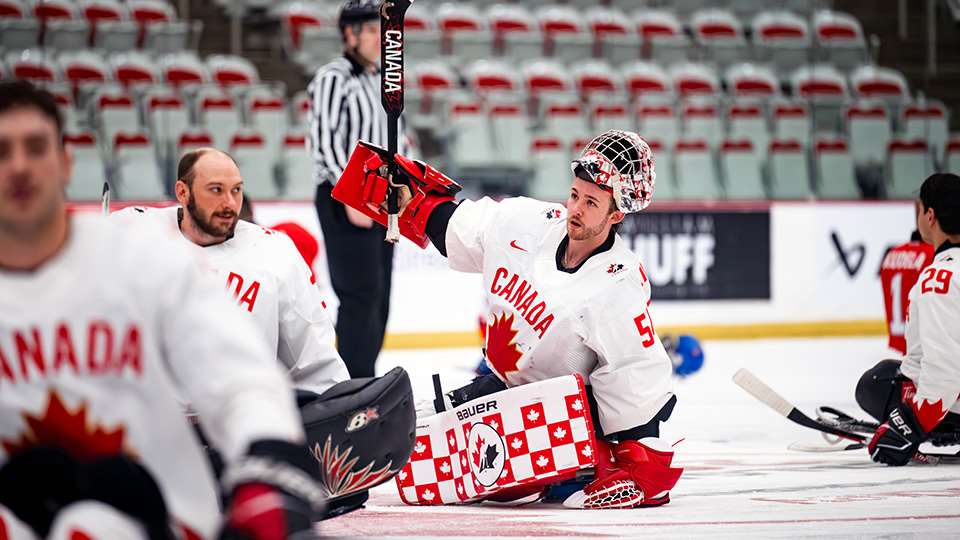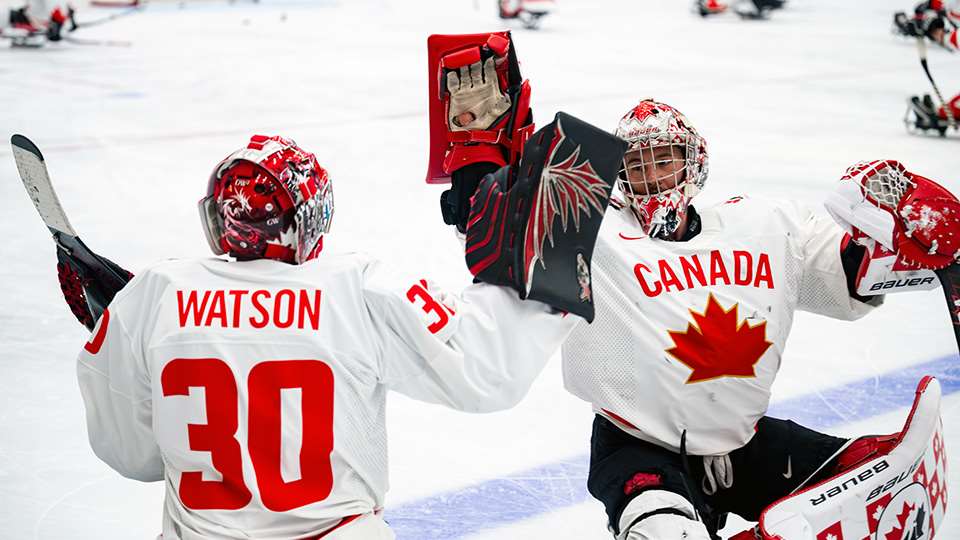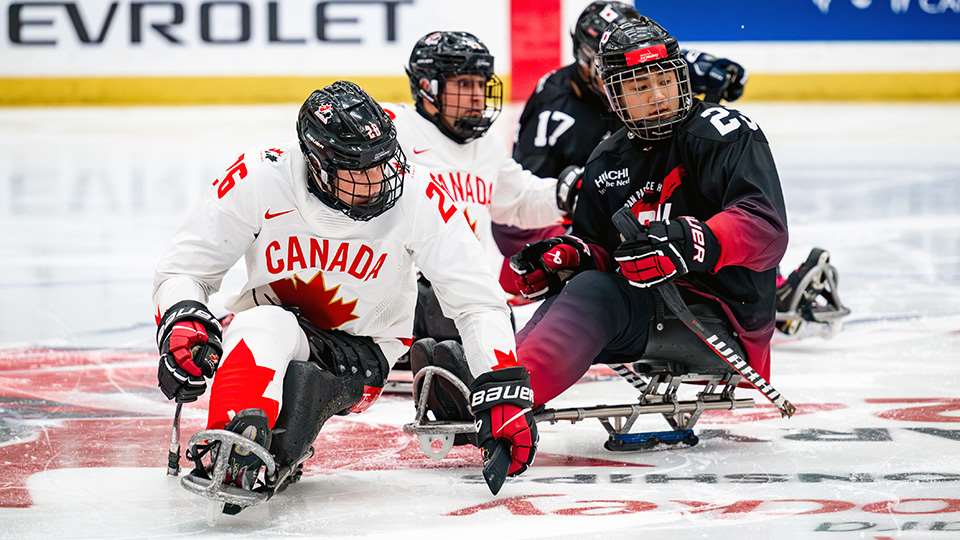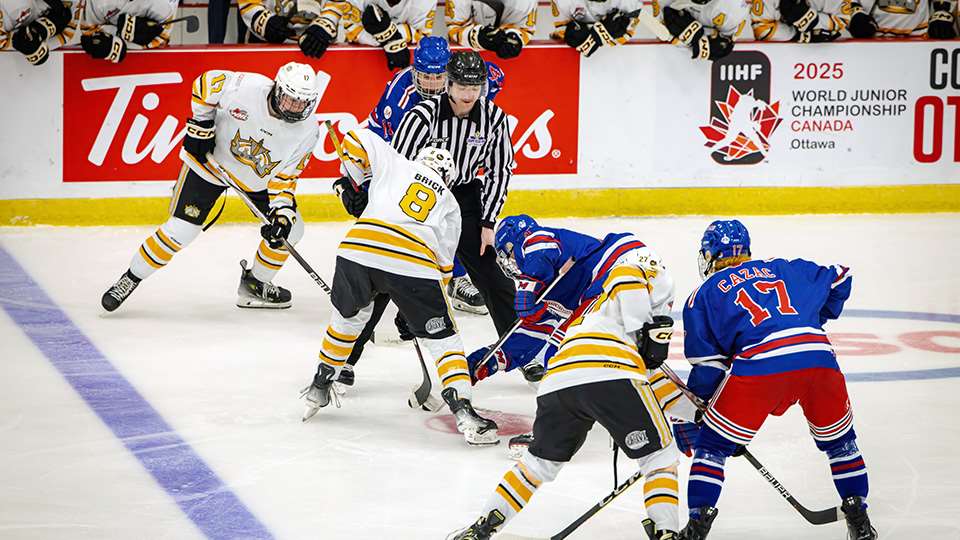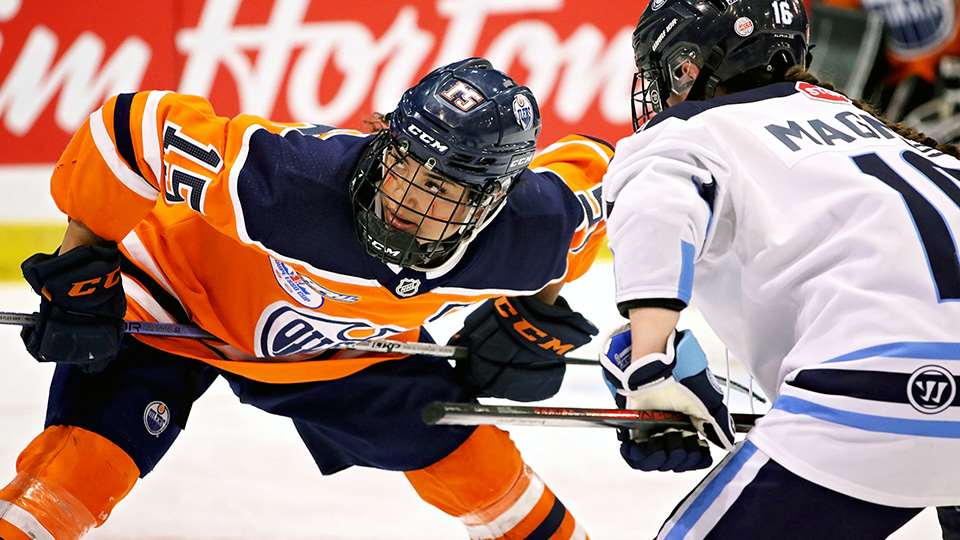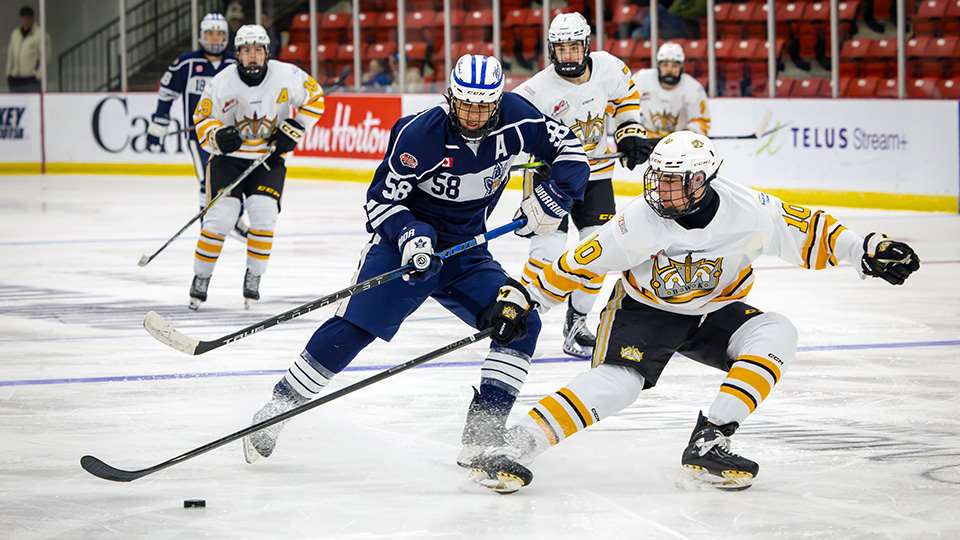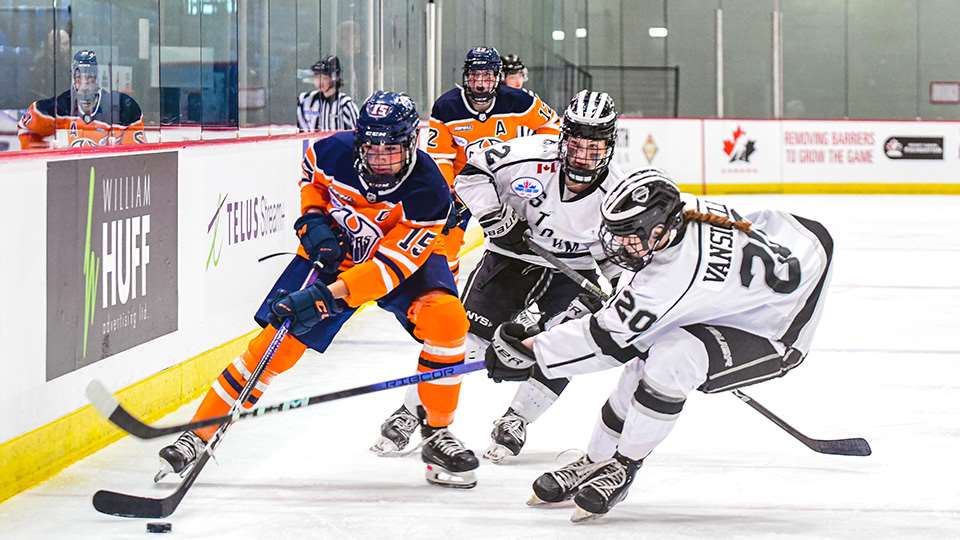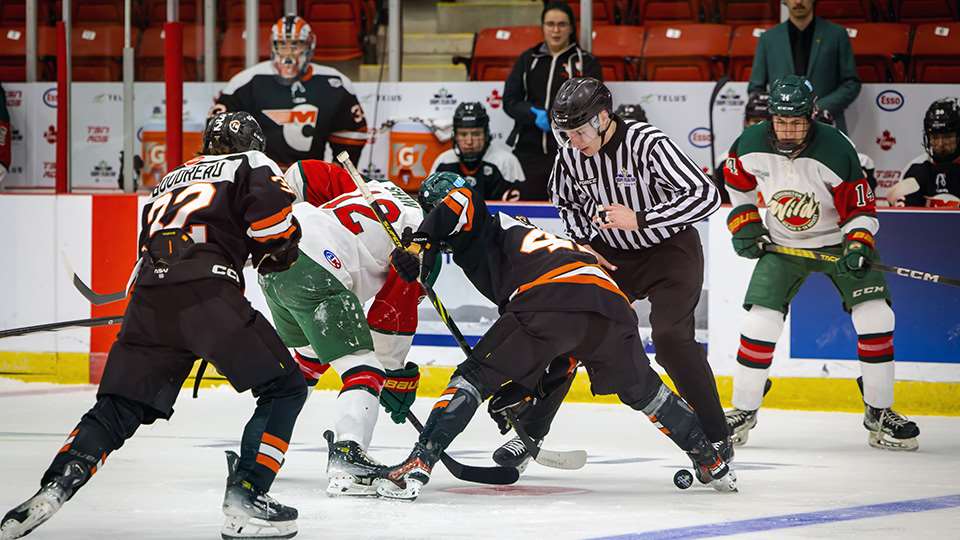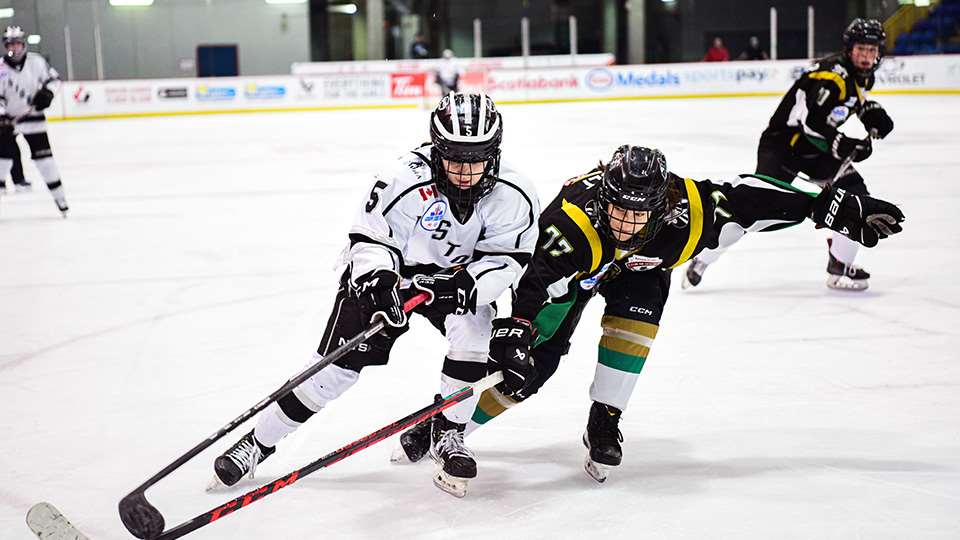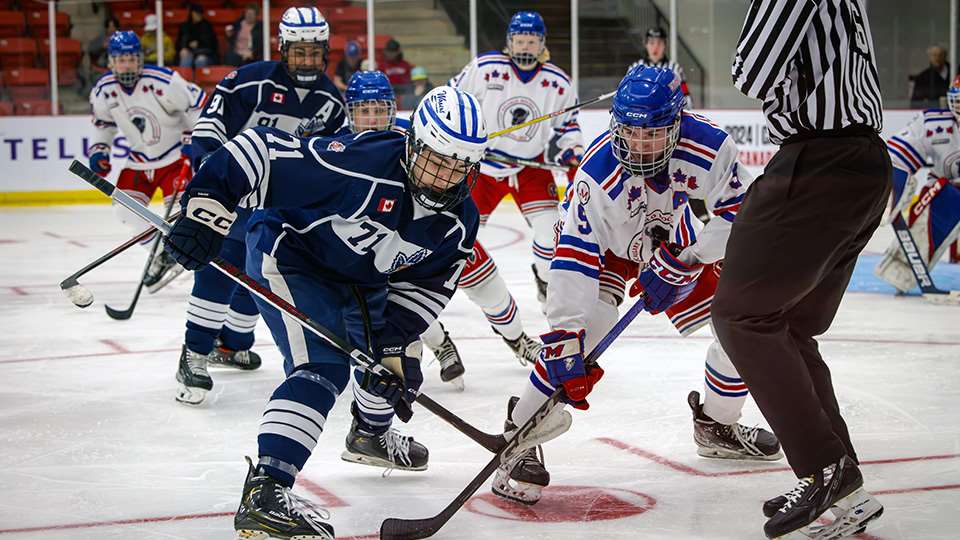
Schedule
Team Canada (Men)
Hlinka Gretzky Cup | Aug. 5-10, 2024
U17 World Challenge | Nov. 3-9, 2024
World Junior A Hockey Challenge | Dec. 10-17, 2023
IIHF World Junior Championship | Dec. 26, 2024-Jan. 5, 2025
Spengler Cup | Dec. 26-31, 2023
IIHF U18 World Championship | April 25-May 5, 2024
IIHF World Championship | May 10-26, 2024
Search
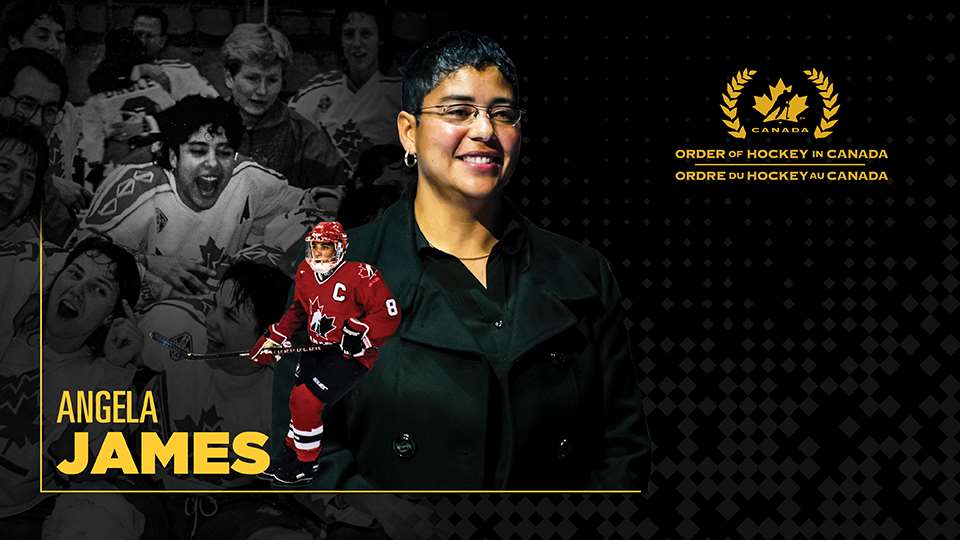
Changing the game
A dominant force as a player, Angela James set the standard for women’s hockey, and today she’s committed to ensuring others enjoy the opportunities the game can bring

Angela James is considered the first superstar of women’s hockey.
A member of Canada’s National Women’s Team from 1990 to 1999, she recorded 54 points in 50 international games and won four IIHF World Women’s Championship gold medals, twice earning a place on the media all-star team. In five games at the 1990 event, she scored 11 goals, still a tournament record.
She played in 12 Esso Women’s Nationals with Team Ontario, winning a medal every time, six of them gold. She was the top scorer for eight seasons – MVP for six – in the Central Ontario Women’s Hockey League, registering 241 points in 117 games. (The league evolved into the National Women’s Hockey League, the forerunner to the Canadian Women’s Hockey League, which named its top scorer trophy the Angela James Bowl.)
In her three years at Seneca College, she was a three-time scoring champion and three-time Most Valuable Player. Her last season, she scored 50 goals in 14 games playing defence.
She was one of the first women inducted into the IIHF Hall of Fame, in 2008, and the first Canadian woman inducted into the Hockey Hall of Fame, in 2010.
James started playing hockey simply to pass the time.
“I grew up in provincial housing, and there wasn’t a lot to do,” she says. “I loved hanging out with my friends. We played road hockey mostly and that evolved to an outdoor arena.” In the winter, she spent her free time at the outdoor rink. Occasionally, she’d have the ice to herself and use that ‘me’ time for skill development. Wherever she could get a ride, she would play.
A neighbour eventually suggested to James’ mom that she should get her daughter into organized hockey because she was so good.
“Up until that point, my mom just knew that I would say ‘bye’ and not come into the house until 10 at night because I would be out playing hockey,” says James. “Hockey was a huge part of my life. It was my life.”
James played her first season in a boys’ league when she was nine. She won the scoring title, and the next year girls were no longer allowed to play with the boys.
She dominated at every level she played.
“She was someone you wanted on your team,” says Fran Rider, president and CEO of the Ontario Women’s Hockey Association (OWHA) and a 2017 recipient of the Order of Hockey in Canada. “She was an incredible player that players on all teams respected. They admired her ability, her strength. She was a very strong, powerful player, and the skill level was absolutely amazing.
“She was an all-around player; she was a two-way player. She could play defence, forward, and she actually played one game in net and, of course, got a shutout. She changed the credibility of women’s hockey through her incredible ability.”
The profile of women’s hockey was raised considerably in 1990 with the first sanctioned world championship. James just wanted to play, but as the face of the game she had more eyes on her.
“She was the one the media was flocking to,” says Rider. “They wanted to see this ‘Gretzky of women's hockey.’ She didn't disappoint. She showed the incredible ability and she showed that women's hockey could stand alone, and it didn't need to be compared to anything.”
The game had incredible depth, says Rider, “it’s just that Angela was that good. She was that one step above, and it was above excellent players.
“She was a key factor in getting women’s hockey into the Olympics. A lot of people worked to get it there, but the key reason for our success was the quality of the players. Angela led the charge in that world tournament.”
James can’t pinpoint any singular highlight as a player; for her, it’s more the collective experience of being part of the game. Playing hockey afforded her the opportunity to go to different countries, meet new people and learn from different coaches. She relished the rivalries and competing. And, of course, she loved winning all those gold medals. But her proudest accomplishment isn’t a piece of hardware.
“I’m more proud of that era and those girls and what they've done now today,” she says. “The people that I played with in advancing the game, and hopefully being a small part of that, that's what I'm most proud of.”
It was important to put the game on the map.
“Back in 1990, our shirts were fluorescent, almost pink,” she says. “At the time, we would say we don't care if we have to wear polka-dots, we just want to play. We also knew that the young kids coming up would have something to aspire to later. And I think that’s happened.”
Words like trailblazer and pioneer often follow James. She accepts them, but doesn’t think she should be singled out.
“I always associate [those terms] with being old,” she says. “If that’s what they want to name it, that’s fine. I guess that’s what we were. I watched a lot of girls play hockey before me. Women have been playing for a long time and they’ve never really had the platforms that they do today, and hopefully one day we’ll get higher platforms. I’m just part of it, and I’m more than happy to be a part of it.”
James has continued to stay involved in women’s hockey off the ice. She received the Hockey Canada Female Breakthrough Award in 2005, which honours an individual who has made a significant contribution to the promotion and/or development of the game in Canada.
She’s officiated, coached and ran development programs. Once, at a masters tournament for the OWHA, teams were promised an alumna to play with. When some couldn’t make it, James played on every team as their role model. “She was laughing, but she was up for anything,” says Rider. “She knew how important it was for those women to have an opportunity to play hockey with her.”
“I coach house league, I coach rep, I coach wherever I’m needed,” says James. ”I just like being a part of the game. It doesn't really matter to me what level it is. You don't have to be playing pro to love our great game. If you can share what you know, at any level, you’ll get just as much out it."
James spent two years as part of the NHL & NHLPA Female Hockey Advisory Committee, an initiative aimed at growing women’s hockey in North America. She’s now working with the Hockey Diversity Alliance, offering a female perspective to their efforts to bring grassroots opportunities to the BIPOC community. And she’s part of a new Carnegie initiative that will develop educational toolkits and provide program opportunities that benefit the BIPOC community.
“She continues to inspire to this day,” says Rider. “She’s so deserving of the Order of Hockey in Canada. It's so good to see her awarded for the athlete and the person she is.”
The Order of Hockey in Canada recognizes individuals who have made outstanding contributions to the game of hockey.
“I find it a little surreal – to be given an honour for something that I love to doesn’t make sense to me,” says James. “It’s just a wonderful tribute to the women's game and my career and what I've done and what I love to do so. I’m honoured to be a recipient of the Order of Hockey in Canada.”
For more information: |
- <
- >

















